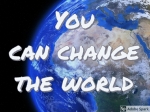
I some places I have lived in Africa, a building has collapsed. Of course, people wanted to know why. In fact, immediately after the collapse the radio, newspapers and ordinary people were speculating on the cause. Most everyone thought that the collapse was due to shoddy construction done to save the owner money. Some introduced a bribe to a corrupt building inspector into this thesis. A few speculated about malevolent unseen forces such as witchcraft or sorcery. Almost no one speculated that the collapse might have been due to an engineering error or oversight.
Decades of working in different cultures has convinced me that our cultures guide which questions we ask when bad things happen. Sometimes it guides us to the wrong questions.
If a structure fails in the US, we mostly look for an scientific or engineering answer. But my African friends mostly speculated about witchcraft, unethical building contractors and corruption. But looking for a witch when the cause is an engineering error won’t get you an answer no matter how diligently you look; neither will looking for an engineering problem when corrupt contractors and officials are the problem.
Jesus pointed out that people in his day were following their beliefs to the wrong questions.
“And what about the eighteen people who died when the tower in Siloam fell on them? Were they the worst sinners in Jerusalem? No, and I tell you again that unless you repent, you will perish, too.” (Luke 13:4-5)
The people with Jesus thought that the building collapsed because of the sins of the people in it. They had a cultural belief that bad things happen because people sin. So they didn’t look for an engineering error, or a corrupt building inspector or even a witch. They just blamed the people in the building for their sins. Jesus rejects their explanation.

I’ve read a number of explanations for the coronavirus. Depending on the person, it is the fault of :
- The President
- The Chinese
- Dr. Fauci
- Mother earth (we polluted and she struck back)
- Climate change
- Population growth
- Sin (It is God’s judgment on sinful people)
You can probably guess what kind of people gave each answer. That’s because people are directed to an explanation by their culture, their ideology, their political preferences, their religious beliefs or even their emotions (Who are they mad at?). Laugh at them if you will, just don’t forget to laugh at yourself too, after all, you are probably letting your culture, or beliefs, or emotions dictate what questions you ask about the coronavirus.
Jesus turns the arrow of blame around.
“No, and I tell you again that unless you repent, you will perish, too.”
Jesus is saying that calamities and disasters reveal something that should have been obvious before – that life is fragile and our encounter with the Just Judge is right around the corner. It’s better to prepare for that than to spend time figuring out what others did wrong.
Your culture, politics, or anger will try to get you to lay blame on their favorite boogie man. Read the Bible. Let God direct your thoughts.









